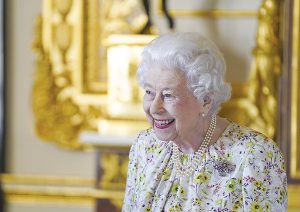Every year on July 31, on the site of an 18th-century coffee plantation in the Jamaican village of Woodside, there is a reenactment of Emancipation Day in 1838 when the slaves were freed by Royal Proclamation. People perform a memorial play, cite the proclamation and debate its meaning. The characters ask, “why should God save the Queen and not the people?†and “How come there was no apology for our enslavement?â€
That is the dark legacy of the British empire, but there are brighter sides too.
The world of Woodside collided with the Duke and Duchess of Cambridge’s royal tour of the Caribbean this week. The anxious-to-please young couple are modern and liberal in outlook, but they represent ancient privilege — for what else is a monarchy?
In a speech to dignitaries in Jamaica, Prince William, the second-in-line to the throne, roundly condemned Britain’s “abhorrent†history of slavery. Too late. There had already been recent demonstrations in Kingston, the capital, and other stops on their tour calling for UK reparations for slavery.
The omens were poor from the beginning. Earlier in Belize, a royal visit was abandoned amid a blaze of publicity when people objected. Prince William’s courtiers had forgotten to do their usual meticulous homework — no one had asked the hosts for permission to land a helicopter in the middle of a football field.
Back in London, newspaper columnists declared that the days of the big royal visit were surely numbered. Footage of smiling crowds, a kick-about with Jamaican-born England footballer Raheem Sterling and a jamming session at Bob Marley’s house didn’t cut it with the critics either: “The bowing and scraping is an increasing absurdity,†noted one commentator.
Jamaica’s Prime Minister Andrew Holness told his royal guests of his intention to hold a referendum on severing ties with the monarchy and declaring a republic. Other Commonwealth realms are debating following the example of Barbados, which recently removed the Queen as head of state.
Is time up for global monarchy? Perhaps the only surprise is that it has taken so long. Why should territories thousands of miles away want a constitutional link to London and the royal family? And doesn’t the UK have a historic responsibility for the institution of slavery on the West Indian islands?
Yet the winds of change are not blowing as strongly as reports would suggest. “Republicans sometimes talk of the Queen ‘clinging on,’†says Robert Hardman, author of “Queen of Our Times.†“After more than 65 years, it has been quite a cling.â€
Fifty years ago, a Foreign Office memo confidently predicted that Jamaica was on the point of becoming a republic. Yet five decades later, the Queen is still the island’s head of state. The Crown in Jamaica, and in other realms, has proved durable because it has stayed above partisan local politics.
After independence, Jamaicans retained the link to the Crown because they saw it as a bulwark against the ambitions of over-mighty politicians. Constitutional tinkering has never been a priority for voters either. Republicanism is a totemic issue solely for the political class, and the Royal Family is quite popular. Even slavery’s abolition is associated with Queen Victoria.
But if Queen Elizabeth II’s far-flung subjects sometimes chafe at royal flummery, they dislike the pretensions of their politicians more. Throughout the 1990s, opinion polls in Australia registered a solid republican majority. Yet voters convincingly rejected a republic in a referendum held at the decade’s end, despite overwhelming backing from newspapers of all political stripes and the cultural elite. Australians revolted at the thought that MPs would have elected one of their own to lord over them as president.
—Bloomberg
 The Gulf Time Newspaper One of the finest business newspapers in the UAE brought to you by our professional writers and editors.
The Gulf Time Newspaper One of the finest business newspapers in the UAE brought to you by our professional writers and editors.
